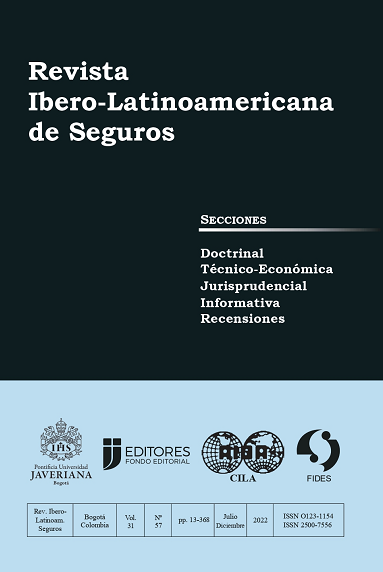Abstract
At the level of the European Union, Regulation (EU) 2016/79 established rules related to the protection of natural persons with regard to the processing of personal data and on the free movement of such data, and lays out an extensive set of principles and norms which final purpose is the defense of the privacy of people and permits European citizens to control their personal data in a better fashion.
Processing of personal data is licit as long as the owner of the data had expressed her consent for one or more purposes. Such consent must be free, specific, informed and expressed.
As to the insurance activity, processing of personal data is clearly needed because it is not possible to subscribe an insurance policy without the insured entity providing the insurer with the personal data which are deemed needed in the context of accepting the insurance policy.
This problem is particularly important in the insurance sector as the number of cases of usage of webpages and digital services by means of which users can collect information about insurance policies offered by the insurance company, carry out simulations in order to know the amount of the premium of a certain insurance policy and submit proposals in order to issue an insurance policy, is growing.
Transmitting personal data on the part of the insured party and the processing thereof by the insurance company responds to the principle of limitation of purposes according to which personal data must be collected for specific, explicit and legitimate purposes and data cannot be processed for purposes other than the ones expressly set out.
The issue of processing of data is particularly important in the case of persons insurance policies and in particular when sensible data must be processed in the precontractual stage and throughout the term of personal insurance policies.
Cybernetic risks are constantly evolving, affect all and cybernetic attacks are growingly frequent and aggressive; therefore, it can be stated that today nobody (companies, organizations, governments) is immune to cybernetic attacks.
O Regulamento Geral sobre a Protecção de Dados, Márcia de Magalhães, 2019
Colectânea de Seguros, Pedro Romano Martinez, 2008
Problemas e Soluções de Direito dos Seguros, Luis Poças, 2020
O Contrato de Seguro, José Vasques, 1999
Direito da Protecção de Dados, A. Barreto Menezes Cordeiro, 2020
Comentário ao Regulamento Geral de Protecção de Dados, Alexandre Sousa Pinheiro, Cristina Pimenta Coelho, Tatiana Duarte, Carlos Jorge Gonçalves e Catarina Pina Gonçalves, 2018
This journal is registered under a Creative Commons Attribution 4.0 International Public License. Thus, this work may be reproduced, distributed, and publicly shared in digital format, as long as the names of the authors and Pontificia Universidad Javeriana are acknowledged. Others are allowed to quote, adapt, transform, auto-archive, republish, and create based on this material, for any purpose (even commercial ones), provided the authorship is duly acknowledged, a link to the original work is provided, and it is specified if changes have been made. Pontificia Universidad Javeriana does not hold the rights of published works and the authors are solely responsible for the contents of their works; they keep the moral, intellectual, privacy, and publicity rights.
Approving the intervention of the work (review, copy-editing, translation, layout) and the following outreach, are granted through an use license and not through an assignment of rights. This means the journal and Pontificia Universidad Javeriana cannot be held responsible for any ethical malpractice by the authors. As a consequence of the protection granted by the use license, the journal is not required to publish recantations or modify information already published, unless the errata stems from the editorial management process. Publishing contents in this journal does not generate royalties for contributors.


